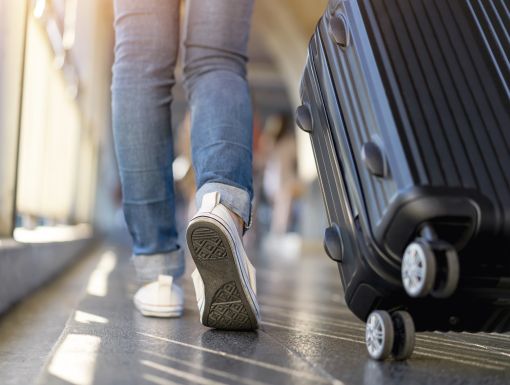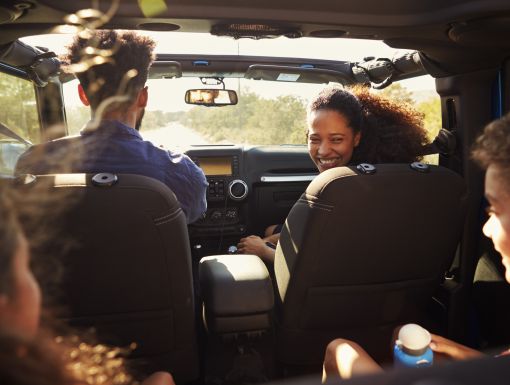
Safety Tips for Traveling this Summer
Before traveling this summer, you may have a few questions. First, it’s important to check the area where you plan to travel to see if COVID-19 is still spreading. Traveling to an area that has a higher rate of COVID-19 could increase your chances of infection. Alternatively, if you are currently infected by the virus with or without symptoms, you could transmit infection to others. This may be more of a risk if the virus is still spreading in your local community.
Here are a few things to remember as you are considering travel plans:
- It’s important to maintain 6 feet of distance from others.
- Be sure to re-evaluate any travel plans if you are traveling with someone who could become very ill if they contacted the virus. This may include the elderly or those with other chronic diseases including diabetes, COPD or asthma.
- If you get COVID-19, you may have to miss work or school. People with COVID-19 need to stay home to prevent infecting others until they are no longer considered infectious.
If you plan to travel this summer, it’s important to know what steps to take to reduce your chances of getting sick while traveling.
- Wash your hands! Washing your hands with soap and water for at least 20 seconds is important. If you’ve been in a public place, have frequently touched others, blown your nose, or sneezed or coughed, wash your hands before touching your face or eating. If soap and water are out of reach, bring hand sanitizer that contains at least 60% alcohol.
- Avoid touching your eyes, nose or mouth with unwashed hands.
- Stay 6 feet away from others.
- If in public, wear a cloth face covering.
- Cover coughs and sneezes with your arm or inside of your elbow.
- When ordering food, use drive-throughs or curbside pick-up.
- Make sure you are up-to-date with your routine vaccinations.
- To sign-up for the latest Travel Health Alerts through the Centers for Disease Control and Prevention, click here.
Domestic Travel
Do you have any plans to visit family or friends? Are you wondering if this could increase your chances of getting and spreading COVID-19? The answer is yes. Traveling increases your chances of getting and spreading the virus. Before you travel, learn if COVID-19 is spreading in your area or in any of the places you plan to go. Traveling to visit family may be dangerous if you or your loved ones are at high risk.
Those at higher risk of serious illness from COVID-19 need to take extra precautions. Those at higher risk may be immunocompromised, older adults, those with asthma, people with HIV or people with liver disease.
If you plan to go camping this summer, it’s important to understand the risk. If you come in close contact with others or share public facilities on the campgrounds, like restrooms or picnic areas, you may be at risk. If you are at high risk or more likely to get very ill from COVID-19 and are planning to be in areas without easy access to medical care, it is especially unsafe. You should also contact your local, state or national public parks before planning your trip, as many are temporarily closed due to COVID-19.
Returning from International or Cruise Ship Travel
It’s important to stay home for 14 days once you return home from traveling internationally. Take these steps to monitor your health and practice social distancing:
- Take your temperature twice a day to monitor for fever. Log your temperature and watch for symptom of infection including cough or trouble breathing.
- Be sure to practice social distancing. Stay home to avoid contact with others. Do not go to work or school and avoid any public transportation.
- Keep your distance from others. Be sure to stay at least 6 feet apart.
Feeling sick? Here’s what to do:
- Avoid contact with others.
- Most people with COVID-19 are able to recover at home without medical care. If you start to have trouble breathing or are worried about your symptoms, call or text your health care provider. You may be able to be seen by a medical provider without leaving your home. Learn more about Ochsner’s Anywhere Care here.
- Call ahead before you go to a doctor’s office or emergency room. Be sure to tell them about any recent travel and your symptoms.
The information in this blog post is accurate at the time of publication. However, as the situation surrounding COVID-19 continues to change, it's possible that information has changed since being published. While Ochsner Health is trying to keep our blog posts as up-to-date as possible, we also encourage readers to stay informed on news and recommendations by using the CDC website.
Stay up-to-date with the latest information by visiting www.ochsner.org/coronavirus



